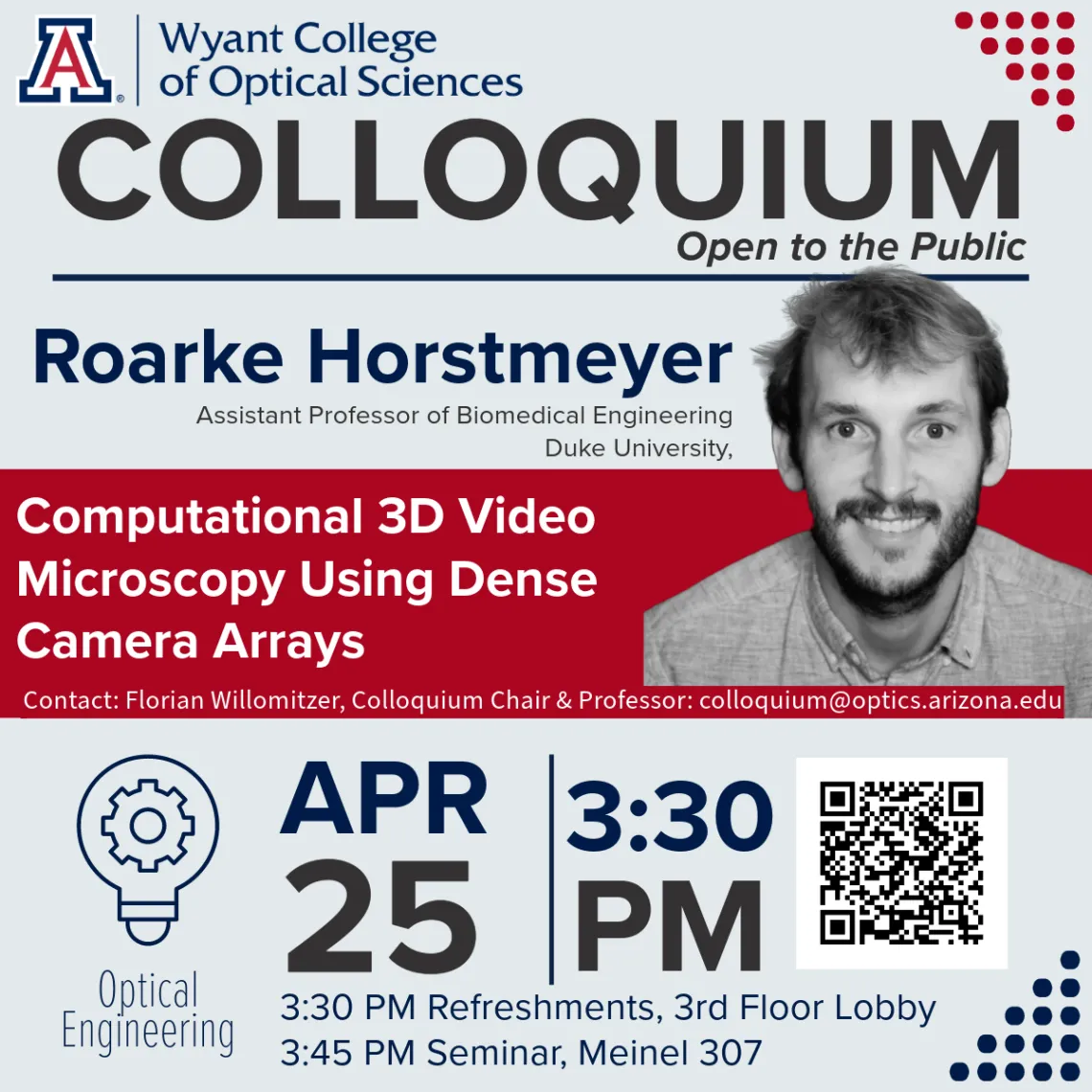
When
Where
Title
Computational 3D Video Microscopy Using Dense Camera Arrays
Abstract
We have developed a new type of computational microscope that uses a compact array of "micro-cameras" to jointly record high-resolution video across large areas. We refer to these novel systems as “multi-camera array microscopes” (MCAMs), which contain up to 96 individual synchronized image sensors and associated lenses to produce gigapixel-scale snapshot measurements. Co-designed software for image stitching, 3D image formation, and object tracking opens up a variety of new applications at the mesoscopic scale. Here, we detail a number of MCAM use cases, including for 3D video of dynamic specimens across large areas at near-cellular resolution, for rapid 3D screening of large collections of organoids, and for high-speed tomographic video capture of freely moving organisms.
Bio
Roarke Horstmeyer is an Assistant Professor of Biomedical Engineering at Duke University, and serves as the Scientific Director at Ramona Optics. He develops microscopes, cameras and computer algorithms for a wide range of applications, from forming large-area, high-resolution 3D videos of freely moving organisms to detecting blood flow and brain activity deep within tissue. Before joining Duke in 2018, Dr. Horstmeyer was a visiting professor at the University of Erlangen in Germany and an Einstein International Postdoctoral Fellow at Charité Medical School in Berlin. Prior to his time in Germany, Dr. Horstmeyer earned a PhD from Caltech’s EE department (2016), an MS from the MIT Media Lab (2011), and bachelor’s degrees in Physics and Japanese from Duke in 2006.
Can't Join Us In Person?
Register for the Zoom Webinar!
Subscribe to Upcoming Colloquium Announcements
Visit our website for future lecture dates and speaker information
